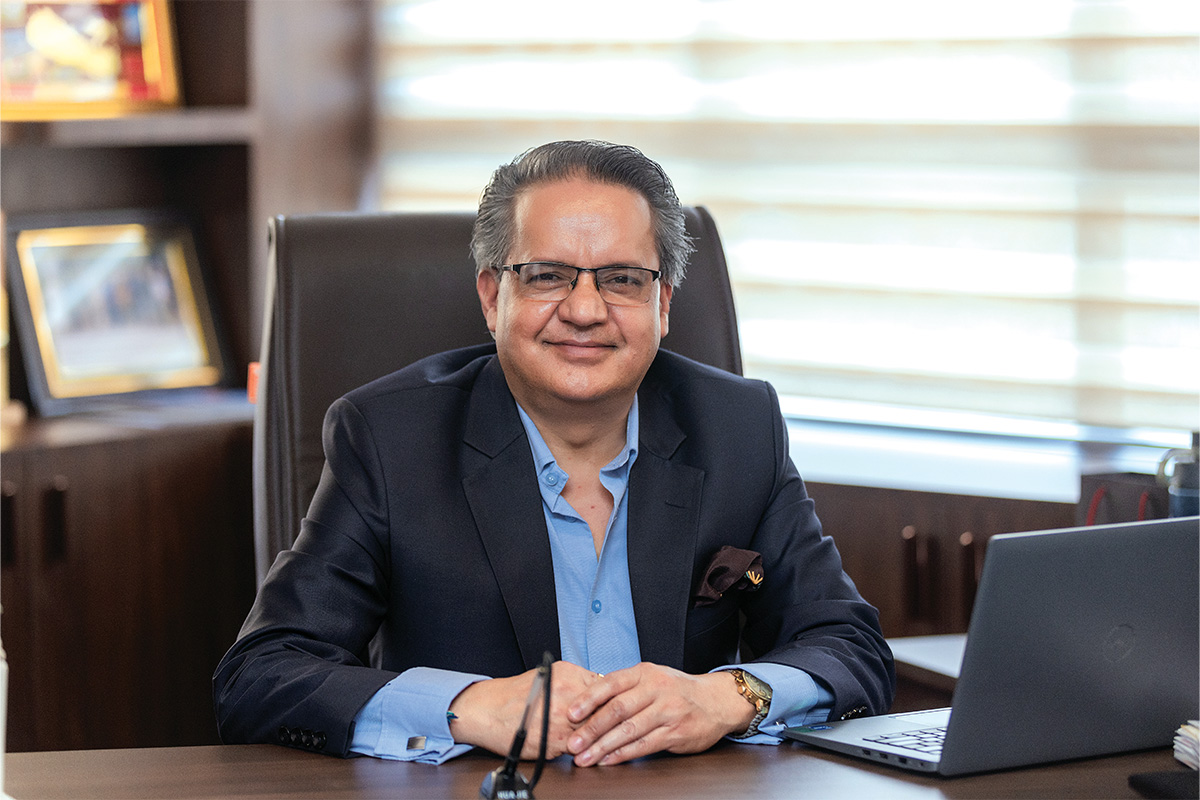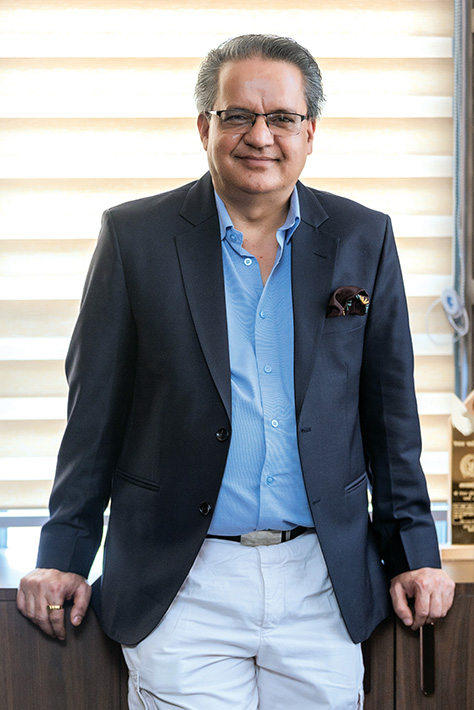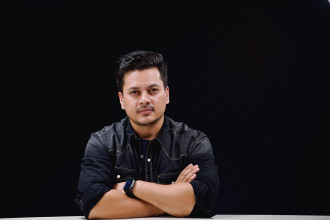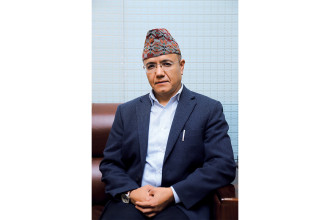
Balram Pathak
General Manager, Royal Tulip Kathmandu
Every day teaches me something new, whether it is about people, strategy or myself. Leadership, in my view, is a lifelong classroom; you never really graduate from it
With over three decades of dedicated experience in the hospitality industry, Balram Pathak is a powerhouse of hospitality knowledge and experience. He served at a leading luxury hotel for 30 years, an incredible journey that shaped his values, honed his leadership, and deepened his understanding of the industry. Currently, he stands as the General Manager of Royal Tulip Kathmandu, Nepal’s largest luxury hotel. At a time when the country struggles with political instability, volatile economy and cut throat business competition, Pathak chooses to leads with forbearance and calculated strategy that builds the brand to a future that was envisioned by its promoters. His journey has been defined by building strong teams, nurturing talent and delivering experiences that guests remember long after their stay. Beyond titles and milestones, he finds his greatest fulfilment in seeing people grow, whether it is his team members stepping into leadership roles or the industry itself evolving to meet global standards.
Pathak believes leadership is not about authority but about responsibility: to inspire, to guide and to create an environment where excellence is not demanded but naturally delivered. To him, hospitality is not just a profession, it is a lifelong passion.
In this edition of Business 360, Pathak shares what makes a leader and how he manages his team while extracting their best.
What is your definition of a leader?
A leader, in my opinion, is someone who motivates others to believe in a goal and work together to achieve it, not just someone with a title or position. A genuine leader fosters an environment where individuals are inspired to perform at their highest level and feel recognised and appreciated. To me, leadership is more about responsibility than it is about power; it is about having the ability to lead, encourage and set an example that others want to follow.
Is leadership ‘inborn’ or ‘acquired’?
I believe leadership is a blend of both. Some people may naturally have qualities like confidence, empathy or the ability to connect with others which gives them a head start. But real leadership is something you continuously learn and sharpen over time. Every challenge, every mistake and every success teaches you to be a better leader. In my own journey, I can say that while certain instincts were always there, most of my leadership skills were shaped by experience, mentors and the teams I have had the privilege to work with.

Who comes to your mind as ‘an ideal leader’?
Ideal leader is someone who combines vision with humility. I admire leaders who do not just talk about big goals but roll up their sleeves and work alongside their team. Globally, I have always looked up to people who balance business success with human values, leaders who inspire trust and leave a legacy of impact, not just profits. Closer home, I have been fortunate to have mentors in my career who embodied this balance and they have shaped how I try to lead today.
Could you share with us any incident that tested your leadership ability?
One incident that stands out was during a major project launch where several things went wrong at the last moment, like logistics issues, vendor delays and even unexpected staff shortage. Everyone was stressed and looking for direction. I knew my reaction in that moment would set the tone. Instead of panicking, I gathered the team, broke the challenges into smaller tasks, and reassigned responsibilities. We pulled through together and it reminded me that leadership is really tested not when things go smoothly but when everything seems to fall apart. It was a turning point for me in learning the power of calmness and clarity under pressure.
How important is it to have a good team to work with?
without a strong team is incomplete. A good leader can have the vision but it is the team that brings it to life. Success is never a one-man show. When you have the right people who trust each other, share ideas openly and are committed to a common purpose, even the toughest challenges become manageable. Personally, I have been blessed with teams who have given their heart and soul to every project and that has been the real strength behind any success I have achieved.
When should leaders hand over the leadership position?
I think a leader should know when to step aside the moment they feel they are holding back growth whether their own, the team’s or the organisation’s. Leadership is not about clinging to power; it is about building something that continues to thrive even without you. The right time to hand over is when you have prepared the next generation to carry the torch forward with the same passion and integrity.
What do you consider your most significant accomplishment as a leader?
Titles and awards are nice, but for me, the most significant accomplishment has been seeing people I worked with grow into leaders themselves. Watching team members step up, take ownership, and succeed in their own right gives me immense pride. That, more than any project or milestone, feels like the true measure of leadership.
What have you learnt as a leader?
The biggest lesson I have learnt is that leadership is not about knowing all the answers; it is about asking the right questions and listening deeply. I have learnt patience, empathy and the importance of adapting to change quickly. Every day teaches me something new, whether it is about people, strategy or myself. Leadership, in my view, is a lifelong classroom; you never really graduate from it.
How can a leader prepare for the unknown?
The unknown is part of every leader’s journey; you cannot predict everything. What you can do is prepare your mindset. I believe in staying flexible, building resilience in myself and my team, and always having a Plan B. The real preparation is about being calm under uncertainty, making decisions with the information you have, and being open to change. If you create a culture where adaptability is valued, the unknown stops being frightening, and it becomes an opportunity to learn and grow.
Where do you find motivation – for yourself and for your team?
My motivation comes from people themselves. Every time I see my team achieve something they once thought was impossible, it fuels me. Every time I meet a guest who shares a positive experience, it reminds me why I do what I do. On a personal level, I draw strength from my friends, family and mentors who have always believed in me. I also stay inspired by constantly learning, whether it is reading, travelling or simply listening to different perspectives. For me, motivation is not a one-time spark; it is a continuous flow that comes from people and experiences around me.
Motivation is about consistency in how you treat people every day. I try to keep my team motivated by making them feel valued, listening to their ideas, recognising their efforts and celebrating even small wins. I also believe in giving people ownership of their work. When someone feels trusted and empowered, they naturally give their best. Of course, challenges come but my team knows they can lean on me. At the end of the day, motivation is about building an environment where people feel proud of what they do and excited about what is ahead.





-(1)-1752214965.jpg)